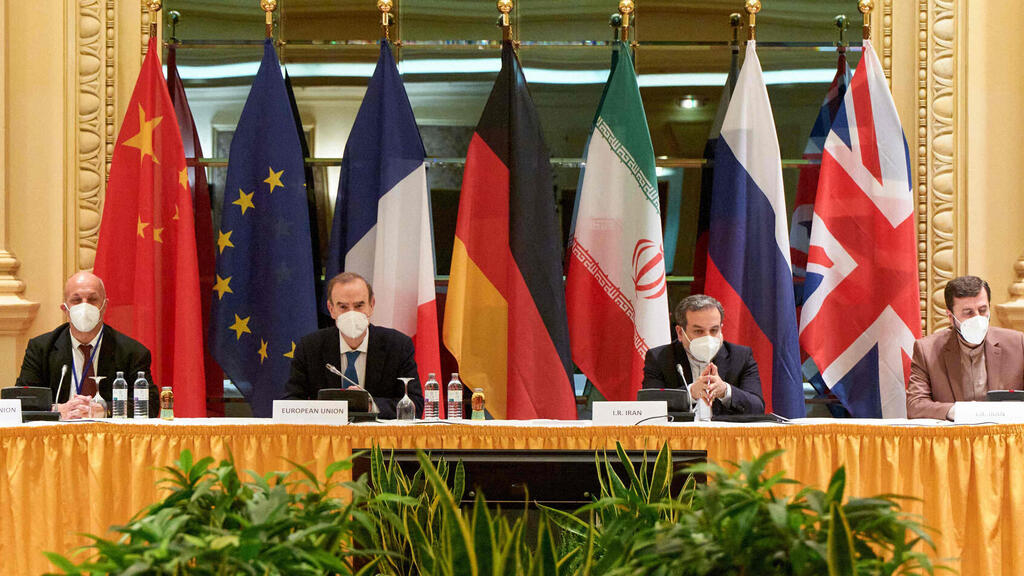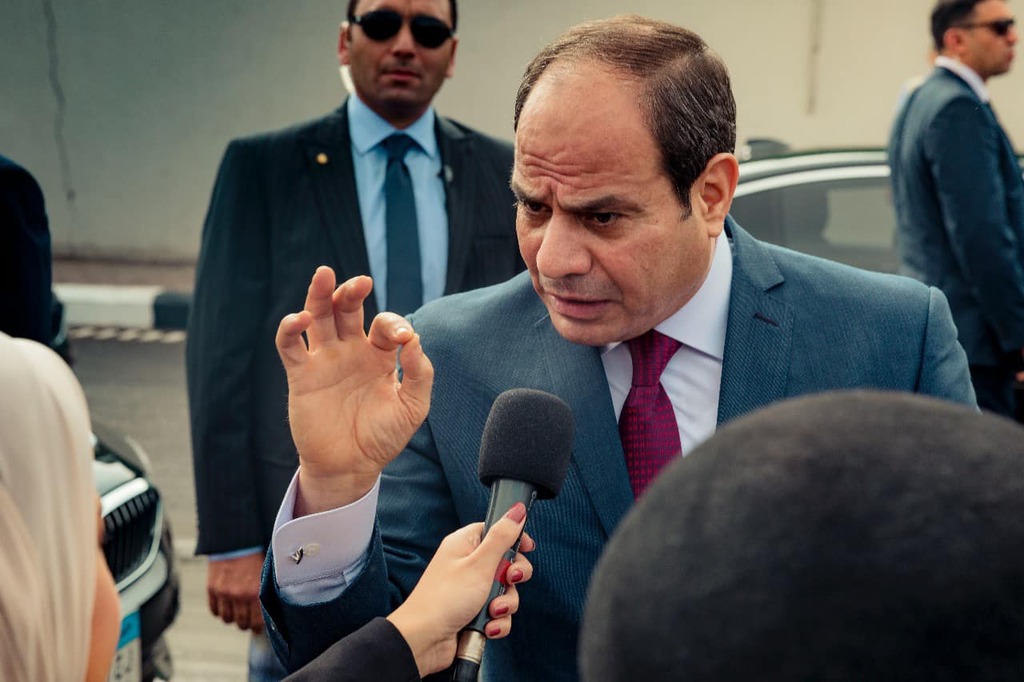Getting your Trinity Audio player ready...
As of May 21, International Atomic Energy Agency (IAEA) inspectors were no longer permitted to enter Iran's nuclear facilities.
Excluding a "symbolic" gesture of leaving the locations' security cameras on for just one more month, Tehran has essentially opted out of all its commitments regarding inspections of its nuclear program.
5 View gallery
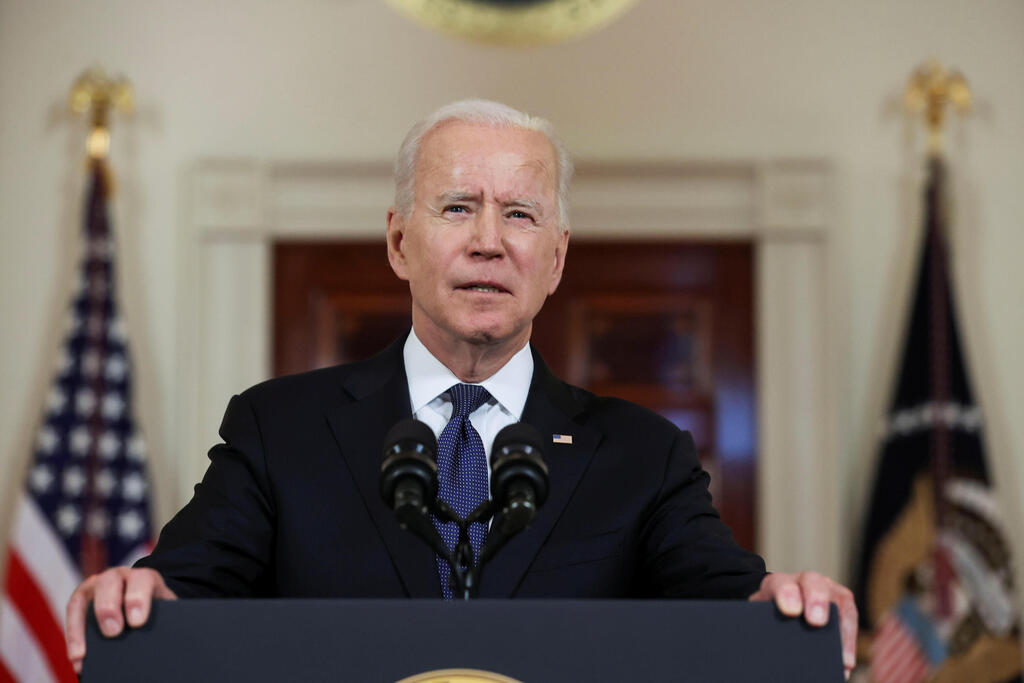

U.S. President Joe Biden speaking from the White House on the eve of the Gaza ceasefire. May 21, 2021
(Photo: Reuters)
And yet the sky did not fall in on us. The IAEA did not panic and the Israel Air Force was not put on attack alert for one simple reason: Everybody involved is sure that the nuclear deal the U.S. left in 2018 will be resumed by mid-June and the inspectors will be allowed back in.
The Americans would not admit this out loud, but all the main sanctions against Iran are being lifted. Nor would they agree that Israel's concerns regarding Iran's ballistic missile program and regional meddling would be taken into account.
Furthermore, not only will Tehran and Washington return to the same deal that President Donald Trump walked away from, but Iran will gain some extra benefits it did not have before, such as the possibility of operating its advanced IR-4 centrifuges that were previously banned.
Israel will have criticism when the nuclear accord is revived, but it will be much more polite and measured than what we witnessed in 2015. And this is for one simple reason.
The latest fighting in the Gaza Strip helped wily old fox Joe Biden reassure Israel that it has a true friend in the White House.
The president's flurry of phone calls to Prime Minister Benjamin Netanyahu have won him the nickname of "mensch" among Israel's security top brass.
Everybody talks about the president's gracious and tolerant conduct. With a man like that, how can anyone be mad at the nuclear deal?
Biden had several good reasons to drop Israel. He never believed he would have to deal with the Israeli-Palestinian conflict so soon in his term, but he still got down to business over the past two weeks.
Biden allowed Israel to gain as much as it could militarily, all the while moving to reach a truce as quickly as possible before the situation spiraled out of control.
The president also took several other unplanned steps, such as speaking with Palestinian President Mahmoud Abbas and Egyptian leader Abdel Fattah al-Sisi.
The Egyptian government is seen by the U.S. administration as a serious violator of human rights and calling Sisi was surely not on Biden's urgent list until the fighting in Gaza began.
Regardless of the tone of Biden and Sisi's conversation, the Egyptian president quickly announced an unprecedented half billion dollars in aid to rehabilitate the Gaza Strip.
The Egyptians, who had hitherto not cared a jot about Gaza and merely played at being regional mediators, are now in lockstep with Biden and ready to take responsibility for all communication between Hamas, Israel and the Palestinian Authority.
5 View gallery
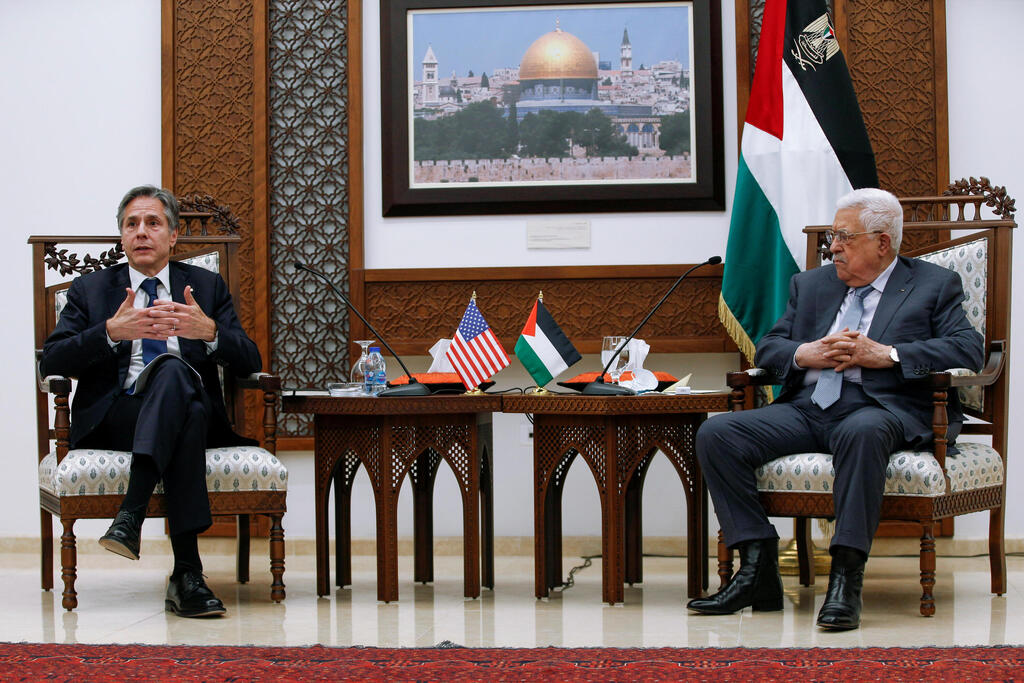

U.S. Secretary of State Antony Blinken and Palestinian President Mahmoud Abbas meeting in the West Bank city of Ramallah on Tuesday
(Photo: Reuters)
U.S. Secretary of State Antony Blinken's visit to Israel on Tuesday, though friendly, was another sign that Washington is changing its approach to the region.
The American administration has reached the conclusion that the U.S. and Israel must bolster the Palestinian Authority. For it was Israel's rotten policy of strengthening Hamas in order to divide the West Bank from Gaza that nearly led to disaster and the terror group's rise to power in Ramallah.
Now, with no vocal objections by Israel, the Americans are delicately and carefully changing the reality on the ground.
5 View gallery
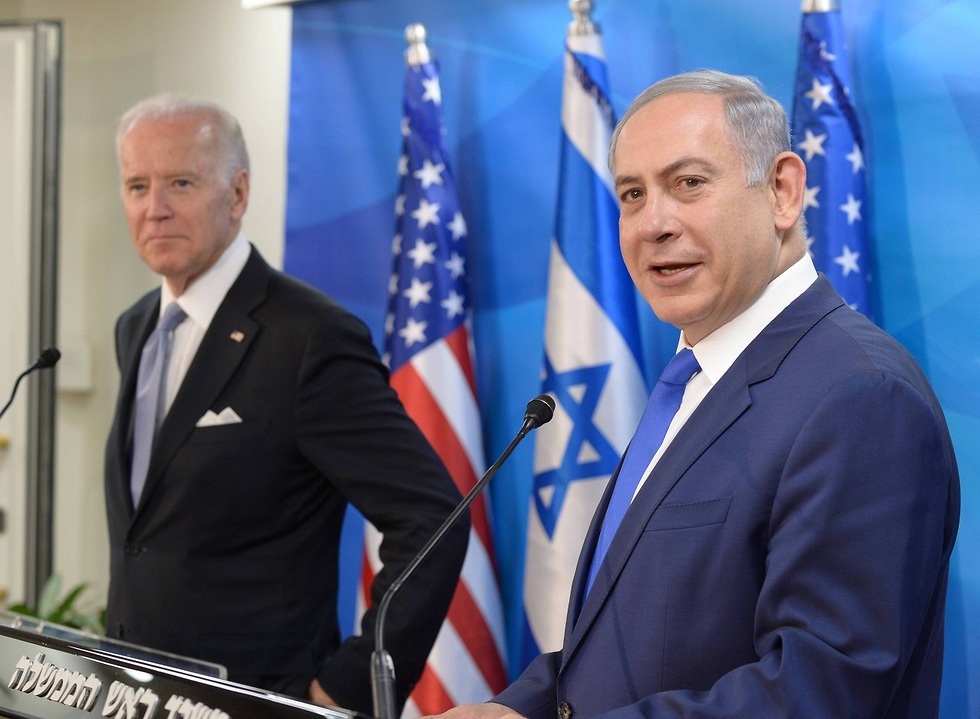

Then-U.S. vice president Joe Biden meeting with Prime Minister Benjamin Netanyahu, March 2016
(Photo: GPO)
Even so, the administration will not withdraw from Iraq or Syria, it will continue to allow Israel to attack Iranian targets in Syria and keep supporting the warming ties between Israel and moderate Arab nations.
The White House is also not going to change its policy of accepting Moroccan sovereignty over Western Saharan so as to not jeopardize the newly restored diplomatic ties between Jerusalem and Rabat.
The U.S. will also aid Israel in resupplying the weapons stocks depleted during the fighting in Gaza, including the crucial Iron Dome missile defense system.
Israel in return will have to align itself with global American interests and learn to trust Biden.
In his first baptism of fire, the Democratic president proved that he is a loyal friend to Israel, regardless of what he thinks of the person in the prime minister's office.


